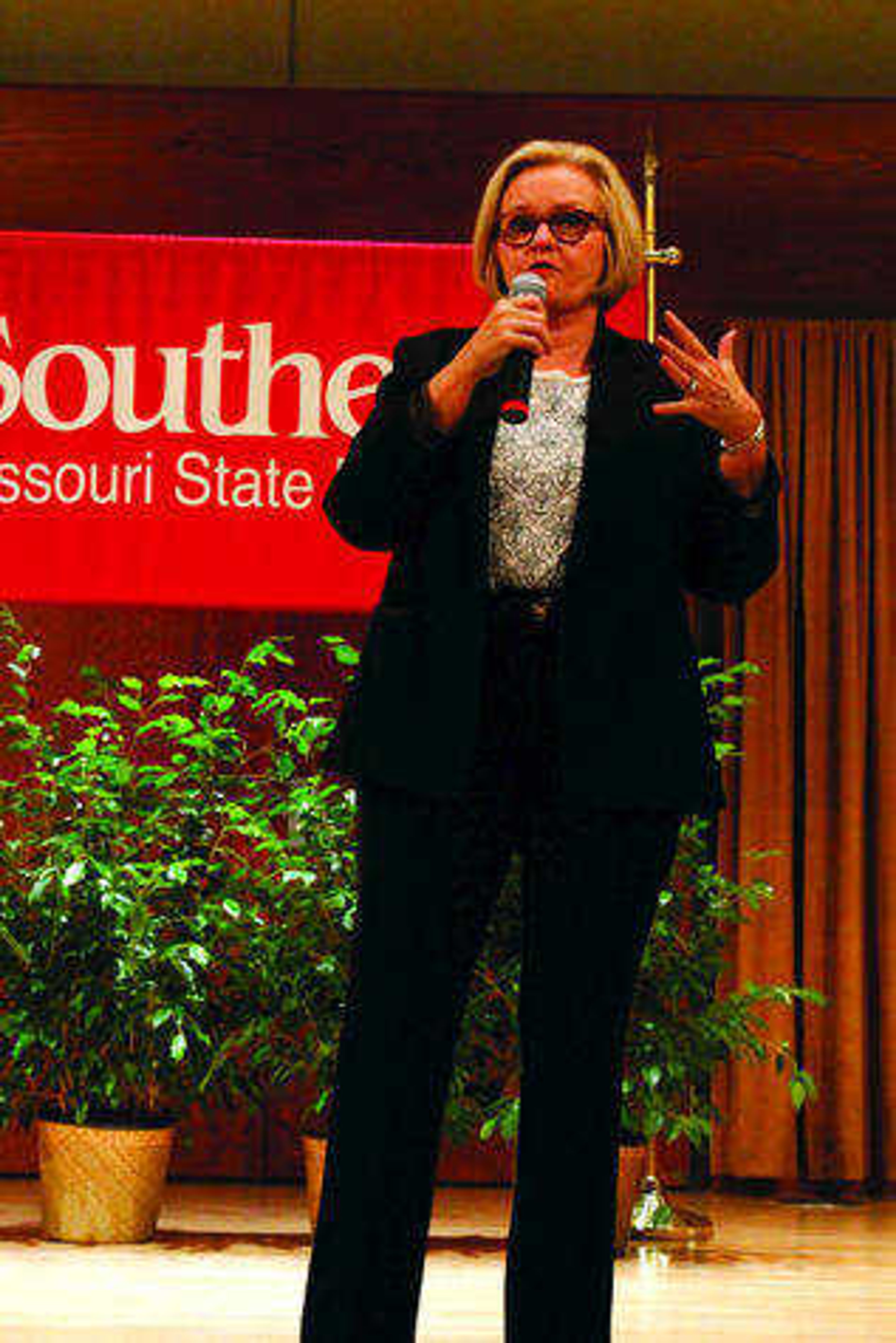United States Senator Claire McCaskill visited Southeast Missouri State University on Monday to talk to students, educators and law enforcement about sexual assaults on college campuses.
McCaskill cosponsored the Campus Safety and Accountability Act with provisions for new campus resources for victims of sexual assault, training standards for campus personnel, annual published surveys by the Department of Education, uniform processes for campus disciplinary proceedings and new enforceable Title IX and Clery Act penalties.
"I'm not here to talk to you about this problem, although I could talk about it for hours, and I'm not here to tell you about my legislation, although I welcome your questions about that. I'm really here to enhance a dialogue about what the current situation is, as it relates to sexual assault on college campuses, and maybe hone in on some of the legislation that we're proposing in terms of whether or not it's addressing issues that you see are problematic -- whether it's an issue of resources, whether it's an issue of training, whether it's an issue of communication, whether it's an issue of systems needed in place, and this is a complicated area," McCaskill said.
McCaskill explained that Title IX covers more than just offering women's sports. It also states that universities must provide a safe, discrimination-free and harassment-free environment for their students. That also means that universities are required to perform an investigation every time someone submits a complaint about a sexual assault.
McCaskill created and conducted a survey on university policies earlier this year, and found that there were many institutions that were mishandling sexual violence cases and some that were in violation with the law.
"Was it problematic that we had a number of schools that were allowing their athletic departments to oversee or manage part of their Title IX education processes? Yes," McCaskill said. "Was it interesting to learn all the other things we learned? Yes. But the thing that stuck out to me, knowing that an investigation is required if there is a complaint, that almost 40 percent of the colleges and universities in the country had not done an investigation on a sexual assault in, like, five years, which means they're saying they have had no one come forward with a complaint of a sexual assault in five years for almost half the schools in the country."
McCaskill asked Southeast faculty about the university's policies and the Campus Violence Prevention Program on campus. She then asked students if they knew that the university offered services for sexual assault victims and no students said that they felt properly informed.
"This is a silent problem because it's always going to be underreported, so victims have to know that there is help for them there on campus in order to give them the courage to come forward," McCaskill said.
While McCaskill said that Southeast seemed ahead of the curve when it came to programs, she emphasized that the programs do not help students if they do not know they exist or that there are places to go on campus after being sexually assaulted.
McCaskill said she has been fighting for sexual assault victims since her time as a Jackson County prosecutor and gained knowledge about the issue from her daughters.
"My youngest daughter just graduated from college and I've talked to them about the situation on college campuses and how safe they feel, and they've told me stories about what goes on in some campuses, and what goes on around the culture of alcohol and sexual conduct, so I just think it's time that we all kind of, like, row together to solve this problem."




